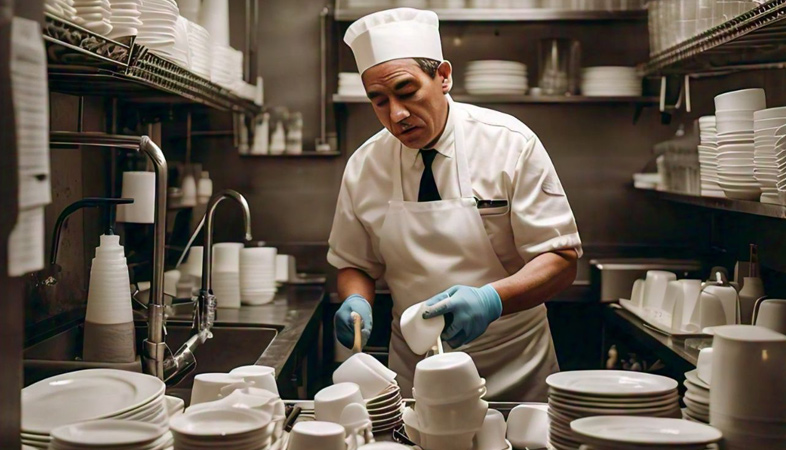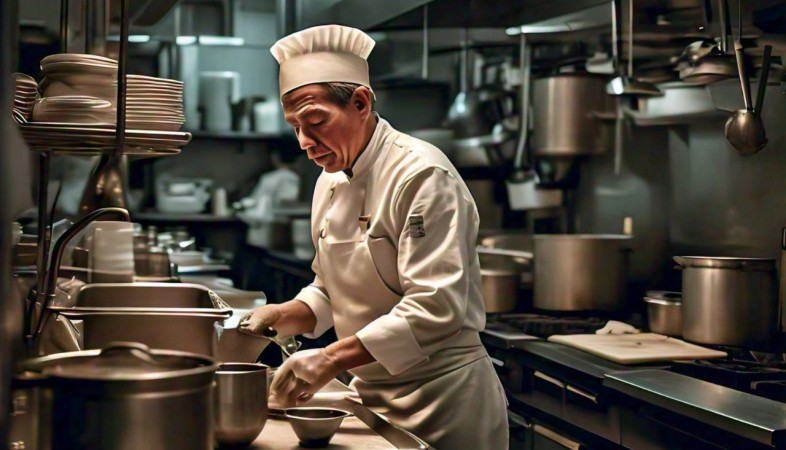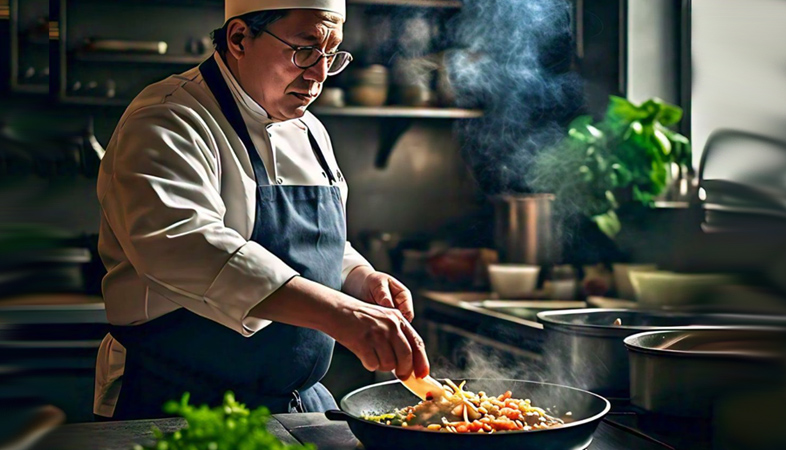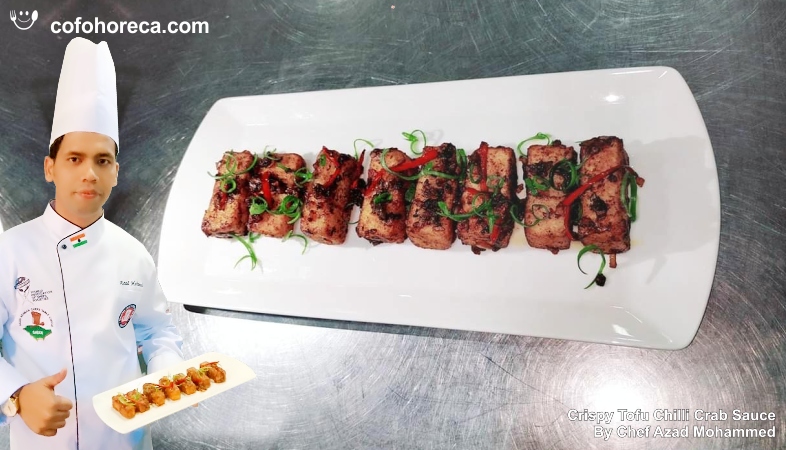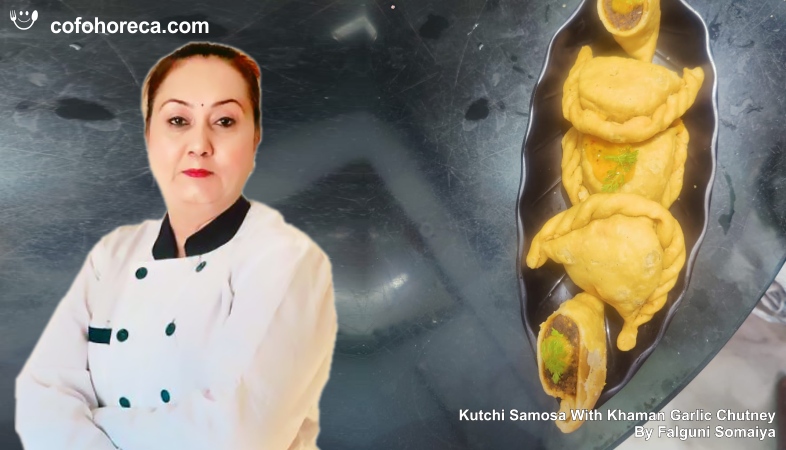Collaborating with the Culinary Team: How Stewards and Chefs Work Hand in Hand
While chefs are primarily responsible for menu development and food preparation, stewards play a crucial role in maintaining the kitchen's cleanliness and organization.
In the fast-paced environment of large-scale kitchens,
effective collaboration between stewards and chefs is essential for ensuring
smooth operations and delivering high-quality dining experiences. While chefs
are primarily responsible for menu development and food preparation, stewards
play a crucial role in maintaining the kitchen's cleanliness and organization.
This partnership is vital for maximizing efficiency, minimizing waste, and
fostering a positive workplace culture, ultimately benefiting both staff and
guests.
The relationship between stewards and chefs begins with clear communication. Regular meetings can facilitate discussions about daily specials, inventory needs, and any upcoming events that require specific preparations. By keeping the lines of communication open, both teams can align their goals and expectations. For instance, if a chef plans to introduce a new dish that requires specific ingredients or equipment, they can inform the stewards in advance to ensure everything is in place. This proactive approach minimizes delays and enhances the overall workflow in the kitchen.
Another important aspect of this collaboration is mutual respect. Chefs and stewards each possess specialized skills that contribute to the kitchen's success. Chefs are trained in culinary techniques, flavor profiles, and presentation, while stewards are experts in maintaining cleanliness and organization. By recognizing and valuing each other's contributions, both teams can create a supportive environment that fosters teamwork. This respect can lead to greater job satisfaction, reducing turnover and creating a more cohesive kitchen staff.
Efficient inventory management is a key area where stewards and chefs can collaborate effectively. Chefs rely on fresh ingredients to create their dishes, while stewards are responsible for ensuring that these items are properly stored and rotated. By working together on inventory management, they can implement a first-in, first-out (FIFO) system to prevent spoilage and waste. Chefs can communicate their upcoming menu items, allowing stewards to prioritize the use of certain ingredients. This teamwork not only ensures that the kitchen runs smoothly but also helps reduce costs associated with food waste.
Training and cross-training can further strengthen the relationship between stewards and chefs. While their primary roles may differ, understanding each other's responsibilities can lead to better collaboration. For example, chefs who are familiar with the cleaning protocols and equipment maintenance required by stewards can provide more relevant feedback on how to streamline operations. Conversely, stewards who understand the intricacies of food preparation can assist chefs during busy service periods. This shared knowledge fosters a sense of unity and encourages teamwork, ultimately enhancing the kitchen's overall efficiency.
Additionally, both teams can collaborate on creating a safe and organized workspace. A clean kitchen is essential for maintaining food safety standards and ensuring a smooth cooking process. Stewards are responsible for cleaning and sanitizing work areas, while chefs need to maintain their stations and ensure that tools are properly stored. By establishing a system where both teams contribute to maintaining a clean environment, they can enhance productivity and minimize the risk of accidents. For instance, if a chef spills an ingredient, they can promptly alert a steward to assist with the cleanup, preventing further disruption to the workflow.
Fostering a positive workplace culture is crucial for effective collaboration between stewards and chefs. When both teams feel valued and respected, they are more likely to work harmoniously and support each other's efforts. Celebrating successes, such as a well-executed event or a particularly busy service, can strengthen their bond and encourage a sense of camaraderie. This can be achieved through team-building activities, recognition programs, or simply sharing meals together after a busy service. These moments foster relationships and create an environment where both teams feel motivated to contribute their best efforts.
Moreover, addressing challenges collaboratively can enhance problem-solving capabilities within the kitchen. When issues arise, such as unexpected ingredient shortages or equipment malfunctions, stewards and chefs can brainstorm solutions together. This collaborative approach not only helps resolve immediate problems but also encourages innovation and creativity in the kitchen. By valuing each other's perspectives, both teams can develop a sense of ownership over their roles and contribute to the kitchen's success.
The collaboration between stewards and chefs is vital for creating a successful kitchen environment. Through clear communication, mutual respect, efficient inventory management, training, shared responsibilities, positive workplace culture, and collaborative problem-solving, both teams can work hand in hand to achieve their goals. This partnership enhances not only the operational efficiency of the kitchen but also the quality of the dining experience for guests. By recognizing the importance of teamwork, kitchens can thrive, ensuring that every meal served is a testament to the dedication and hard work of both stewards and chefs.
.png)


